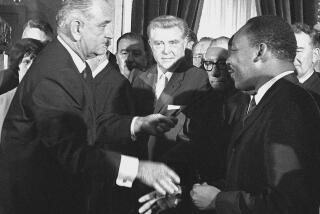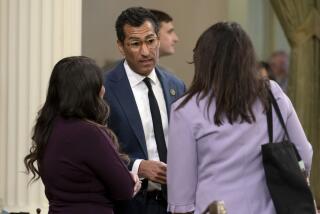Readers React: Weighing ‘one person, one vote’ and ‘no taxation without representation’
- Share via
To the editor: Richard Hasen reports that this week the U.S. Supreme Court struggled with the “one person, one vote” ruling from the 1960s, writing that the court has never explained whether the equalization entailed in that rule was of voters, people or something else. (“Justices will get no satisfaction with a new ‘one person, one vote’ rule,” Opinion, Dec. 8)
Our history suggests a “something else” — the equalization of taxpayers.
More than 200 years ago the rallying cry was “no taxation without representation” because American colonists deeply felt their interests were not represented in the British parliament. Britain’s position that “virtual representation” was or should be sufficient was not persuasive, and the matter became one of the central causes of the American Revolution.
What can we learn from this precedent?
John H. Geerken, Claremont
The writer is a professor emeritus of history at Scripps College.
..
To the editor: In 2014, Rep. Loretta Sanchez (D-Santa Ana) won reelection with 49,738 votes. Nearby, Rep. Dana Rohrabacher (R-Costa Mesa) won with 112,082 votes.
Similarly, in the San Diego area, Democratic Rep. Juan Vargas won with 56,373 votes, while nearby Republican Rep Duncan Hunter was reelected with 111,997 votes.
Fairness alone dictates redistricting. I could only imagine the editorial meltdown if Republicans were winning elections with half the vote total of a neighboring Democrat.
Bob Munson, Newbury Park
..
To the editor: If a significant group of citizens and resident aliens is unrepresented in the political process, I expect it will no longer be required to pay federal taxes on its income in the same way people in Puerto Rico are relieved of that burden.
Denny Haythorn, Los Angeles
Follow the Opinion section on Twitter @latimesopinion and Facebook
More to Read
A cure for the common opinion
Get thought-provoking perspectives with our weekly newsletter.
You may occasionally receive promotional content from the Los Angeles Times.









